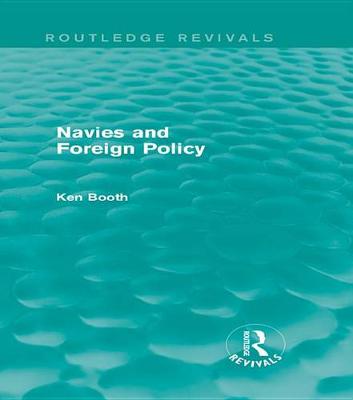Routledge Revivals
2 total works
First published in 1977, this study offers a comprehensive, systematic and integrated survey of the important relationship between navies and the making and execution of foreign policy. Ken Booth explains the functions navies can perform in both war and peace, the influence they have on particular situations, and how the relevant organisations can affect the character of naval actions. Ultimately, navies are regarded as indispensable instruments of the state by a number of countries, whilst all countries with a coast find some need to threaten a degree of force at sea. This book provides students and academics with the intellectual framework with which to assess the changing character of the navy.
Ken Booth's study, first published in 1979, investigates the way in which cultural distortions have affected the theory and execution of strategy. Its aim is to illustrate the importance of ethnocentrism in all areas of the subject, to follow through its implications and to suggest approaches to the different problems it poses.
Insights are offered into the character of a number of important issues in Cold War international politics, including the superpower arms race, detente, the Middle Eastern crisis, the Soviet arms build-up and the SALT talks. In light of the cost of modern warfare, it is all the more important to avoid strategic failures in the future. Strategy and Ethnocentrism aims to alert students of military and strategic studies to some ways of minimising the risks of failure in an age when war is increasingly characterised by racial, cultural and religious conflict.

